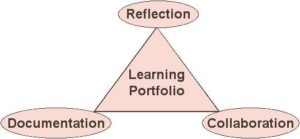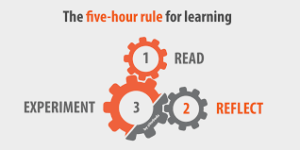
September 26, 2018
In the digital world,
knowing is as important as doing

Almost every C-level executive I speak with tells me they are so busy doing their business that they have no time to think about their business. Whether it’s the back-to-back to back meeting calendars or the explosion of digital communication tools from e-mail to texting to Twitter, executives at all levels are completely overwhelmed by the demands on their time and their schedules.
In KPMG’s Global CEO Outlook 2016 survey of 400 CEOs, 85% “admit vulnerability about the amount of time they have to spend strategizing about the forces of disruption and innovation.” The consequences of this loss of control is that critical decisions often get made without sufficient understanding of what’s at stake and what tradeoffs should be made to gain the desired outcomes.
A bias for action doesn’t have to rely on gut instinct

Much has been written about “first mover advantage” and the ability to gain market advantage by being early to leverage new digital technologies. The challenge, however, is that the unprecedented waves of these new digital technologies makes it very difficult to know which ones to bet on. Rather than just falling back on your gut instincts, it is now a leadership imperative that you find time to learn.
You can also learn by doing. The major benefit of creating and delivering a minimum viable product (MVP) to customers is to learn what you don’t know or didn’t anticipate their response to be. These real-life experiments let you make decisions based on facts not assumptions. You can learn from your mistakes and make new decisions based on actual market feedback and actions.
Build a Learning Portfolio

Learning faster than the competition is your only sustainable competitive advantage. As such, this puts a premium on your ability to design and implement what I will call “a learning portfolio.” This portfolio is made up of subject areas that you and your leadership team think will influence and impact the future growth and performance of your company. It will include identifying subject matter experts and other collaborative resources to help you learn about the fast-changing dynamics of the digital world. It will also help you to shape the scope and focus of your company’s data analytics strategy.
Here are some questions to help you build your learning portfolio:
- What digital technologies can our company use for increased competitive advantage?
a. How much do we know about these digital technologies? - What areas of our business are most vulnerable to digital disruption?
a. What do we need to know to defend ourselves against these disruptions? - What skills and capabilities do we need to compete as a digital enterprise?
a. Do we know how to acquire or develop those skills and capabilities? - What customer and market data do we need to make informed decisions?
a. Do we know how to effectively and efficiently translate data into action?
The thoughtful exploration of these and other critical questions requires that you find the time and discipline to think and reflect on emerging issues and opportunities. A good step in that direction is the 5-Hour Rule.
The 5-Hour Rule

The five-hour rule was coined by Michael Simmons, founder of Empact. The concept is simple, no matter how busy successful people are they always “set aside at least and hour a day to deliberate learning.” He traced this concept back to Benjamin Franklin whose deliberate learning activities included:
- Waking up early to read and write
- Turning his ideas into experiments
- Cultivating conversation partners
- Having morning and evening questions to reflect on
When Bill Gates was CEO of Microsoft, he used to take “think weeks” where he would go off by himself to a cabin in the woods and read, try out competitive software and think about the major changes that could potentially disrupt his company’s success. It was on one of these think weeks that he came to the conclusion that Microsoft had to convert to an Internet-compatible business model.
Jack Ma CEO of Alibaba believes that “when you make learning a habit, you’ll be more successful and productive in life. By investing in a learning habit, you can ensure you’re growing yourself and your company every day.”
Warren Buffet has invested 80% of his time in reading and learning throughout his career. He said the key to his success was to “read 500 pages every day. That’s how knowledge works. It builds up, like compound interest.”
Jeff Bezos has built Amazon around learning on a massive scale via experimentation and he has been a avid reader his whole life. As he said, “if you double the number of experiments you do per year, you are going to double your inventiveness.”
President Obama said, “reading gave him the ability to occasionally slow down and get perspective and the ability to get into somebody else’s shoes.” He went on to say that it also allowed him to maintain his balance over the course of eight years in “a place that comes at you hard and fast and doesn’t let up.”
One of the traits that Michael Simmons found in successful leaders was while they delegated many of the tasks and responsibilities for the operation and performance of their companies they’ve held onto this intense amount of learning for themselves.
This led him to conclude that:
“At the highest levels, learning isn’t about something you do to prepare for work. Learning is the most important work. It is the core competency to build. It’s the things you never delegate. And it’s one of the ultimate drivers of long-term performance and success.”
Just to be clear, success still depends on strong execution of well thought out business growth strategies. The difference in the digital world is that the playbook for creating and implementing these strategies is still being written and is changing all the time. As such, building a portfolio of subjects you want and need to know about and then committing to do so through deliberate learning will give you and your company a big competitive advantage.
As always, I am interested in your comments, feedback and perspectives on the ideas put forth in this blog. Please e-mail them to me here. And, if this content could be useful to someone you know please share it here:


